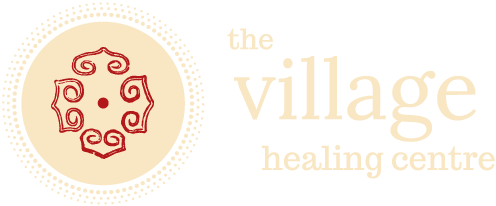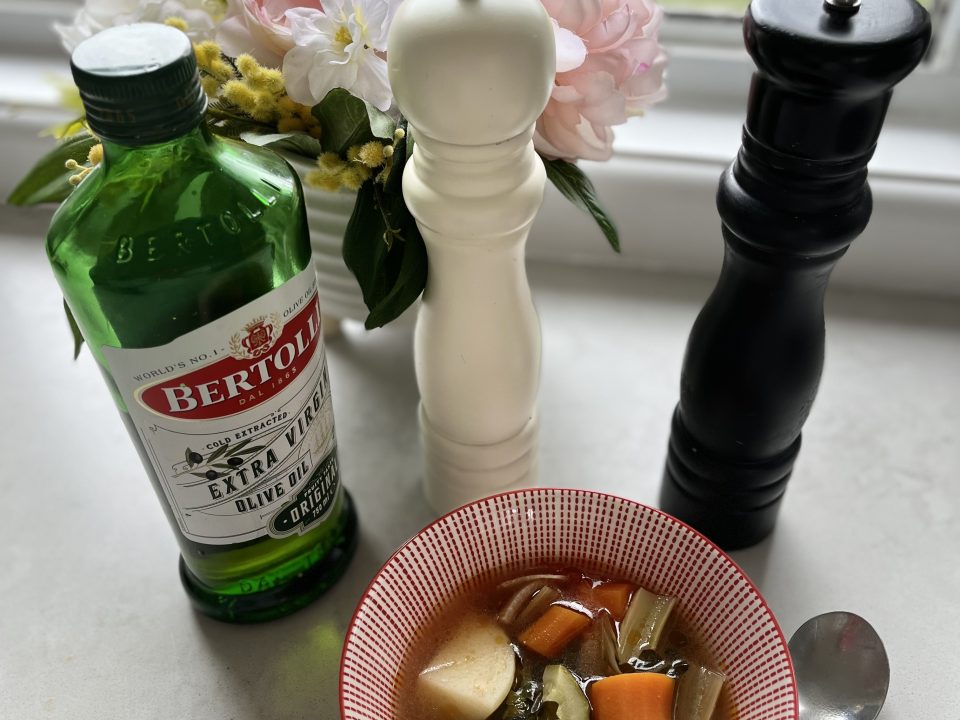The Chinese medicine approach to lactation

The written records of Chinese medicine contain a rich and diverse body of knowledge extending back in time, thousands of years into the past. This knowledge includes much information about caring for mothers.
At a seminar many years ago, the presenter told us there was a good reason the (generally male) authors of the day kept such detailed observations about looking after the mothers in their care. It was not because China was a progressive, feminist culture. Perhaps quite the contrary. She told us that it was because they had a keen interest in tending to their breeding stock – to keep the mothers healthy before, during and after each pregnancy and birth, in order to produce robust sons!
Indeed, alongside a rich written record of human medical therapies, there is also a great commitment to caring for agricultural animals to improve their health and production. Interestingly, this application continues today, where people in modern times are applying acupuncture and Chinese medicine treatment to domesticated animals to manage fertility and support postpartum issues such as mastitis.
So what does the traditional view say about lactation? How are these principles applied to humans in modern times?
Milk and Blood
In Chinese medicine diagnosis, the main principle for lactation always comes back to the source of milk – the Blood. This is Blood with a capital “B” because in Chinese medicine, the notion of “Blood” is further-reaching than the meaning of the term in English (and in Western scientific medicine).
“Blood” can, indeed, refer to the red fluid that flows in the vessels of the body. However, it also denotes living flesh – the structures of the body. The intelligence that creates those structures is called Qi (pronounced “chee”).
Qi and Blood represent two parts of one whole: the intelligence that creates the structures in a dynamic fashion (Qi), and the structures themselves that are in a constant state of dynamic production (Blood). There is a saying in Chinese medicine that describes this interwoven connection: The Qi leads the Blood; the Blood contains the Qi.
So Blood is the living form, connected to intelligent creation. There is also a deeper connection that’s relevant to Blood. And that is the link to consciousness. Another saying puts it quite simply: Blood houses the Shen. (“Shen” can’t be properly translated, but it’s something like consciousness-mind-spirit – the “presence” of a person). If Blood is insufficient, a person may feel restless, light-headed and suffer from light and interrupted sleep. Ample Blood helps the person to feel rooted in the body and to surrender easily to deep sleep.
So how do we support Blood? And is anything else needed for breastmilk production?
Milk and Qi
There are two Zang (translated as “organs”) that are the most closely linked with breastfeeding, according to Chinese medicine.
Spleen-Pancreas transforming food and water to produce milk
One organ system is the Spleen-Pancreas system. In relation to milk production this means:
- receiving
(food and drink from the outside, as well as love and care from others) - transforming
(extracting the energy that was creating the form of the food – the apple’s form is no more, the energy now flowing through a human form) - distributing
(sending the energy to any place in the body that requires it, from the follicle on the crown of the head to the nail bed of the little toe) - assimilating
(encouraging each and every part of the body to bring that energy in, so that it is now embedded, dissolved, assimilated into this living person – the apple is no more, and the human has another handful of moments of living)
These steps are crucial in the formation of Blood. There are some other processes associated with formation of Blood, but this is the most relevant part that impacts breastmilk production.
The Spleen-Pancreas system needs to be energised to be able to do this transformative work (sufficient “Spleen-Qi”). For a number of reasons that are too detailed to go into, many women are already struggling in this area even before pregnancy; the rigours of pregnancy and birthing can bring added pressure. Furthermore, in Chinese medicine, it is said that women lose a vast amount of Qi and Blood during birthing. The postpartum time should be intently focused on replenishing these core resources.
So taking energy from the external world, forming Blood and making milk is one part of lactation. The other part is about action and flow, so that the milk is created and moves into the baby with perfectly coordinated timing. That’s the domain of the Liver system.
Liver coordinating movement to facilitate the flow of milk
In classical texts, the Liver is likened to the General in Charge of the Armies, whose role is to take the precious instruction from the Emperor (in Chinese medicine, the Heart – the centre of intelligence) and to plan and strategise to make this instruction take place in the outside world. The words may sound a little archaic, but working with the “Liver Qi” is an important aspect of acupuncture and Chinese medicine practice in modern times, and you’ll see why in a moment.
“Liver” is the dynamic action that creates the embodied experience of this person, this moment, according to the innate instructions housed within (something like genes in the DNA being switched on and off).
It is about the creation of the person in response to the person’s current internal and external circumstances. It can pertain to cellular actions, smooth muscle contraction, muscular tension, involuntary movements, hormonal interactions and much more.
This intelligent action is distributed throughout the body, at the macro- and micro-level. “Liver” is just a name, but it is really referring to the distributed, dynamic and fluid way that the living body is created within here-and-now circumstances. The hair on the crown and the little toe’s skin need to appear together, harmoniously, wind or cold, rain or shine, along with the kneecap, the heart muscle and the ribcage – all the cells of the body, changing moment by moment, together as one. This is no mean feat, and this distributed action is “Liver”.
Because Liver acts on signals from the consciousness (“Heart” in Chinese medicine), stress can create problems when the Liver tries to act out what’s in the mind. Anger, frustration, too much on the “to-do” list that can’t all be done today – these create something akin to traffic congestion in the intelligent flow of information throughout the body-mind.
Smooth flow of Liver Qi allows milk to form, to let down and to express to the baby, in anticipation of the baby’s near-future needs and in response to the baby’s immediate requests. Congested Liver Qi can cause problems with this co-ordinated process, often manifesting in issues with dysregulated let-down.
So these are the two main systems involved with lactation issues. Read on to discover how you can maximise your circumstances to benefit your breastfeeding relationship.
Self-care for breastfeeding
Because milk production relies so deeply on bringing energy in, and flowing smoothly, these are the two areas that you can really focus on if you have issues with milk supply.
(Of course, remember to seek advice from a midwife, lactation consultant or early childhood nurse if you have any concerns or could do with some help. Their advice can work alongside these self-care strategies.)
Bringing energy in
There are four main sources of external energy that merge to create the living, feeling human being. Tune in to yourself to see if any of these areas could do with some support.
Breath – when tense or preoccupied, it can be so easy to fall into shallow breathing, or even breath-holding. As you’re feeding or cuddling your baby, or while your baby is sleeping, you can do a simple deep-breathing practice, like this one:
- tune into your abdomen, below your belly button
- inside your lower belly, feel a warm, loving energy tank that can absorb unlimited resources for your benefit
- as you gently take a breath, feel this energy tank absorbing and welcoming the breath, holding the energy within, for you
- let each out-breath happen naturally
- enjoy the tiny gap following the out-breath, riding the gentle and pleasant urge to breathe in
- repeat slowly, for 10-20 breaths
- then just relax and breathe normally
Water – breast milk production relies on blood volume. The main source of blood volume is water intake. After childbirth, most women will be in a state of relative depletion. We say, “the channels are empty”. This creates vulnerability due to the low-energy state. For this reason, warm water is more nourishing (except for very hot days when you are overheated, when a few sips of cold water can bring the energy from the surface into the body). If you have some vacuum flasks, you can fill a few at a time to keep next to you when baby is feeding. Try to take sips throughout the day to maintain a steady blood volume. Erratic water intake – with large gaps then large intake – may simply create work for your kidneys as the volume can’t expand beyond a safe level. You may just end up peeing too much! Moderate, warm and steady is the way to go.
Food – think comfort food. Mashed potatoes, casseroles, hearty soups, lasagne, omelettes… warm, hearty, well-cooked, packed with whole foods. Don’t think about losing your baby weight and don’t try to eat the popular image of “healthy” that is raw, salad foods. These are harsh for a tired body to try to break down. Food that is typically given to people recovering from illness is what you want – easy to absorb, soft, full of flavour and life.
Love and support – this can be the hardest resource for independent women to allow themselves to receive. Let people look after you. Let yourself be dependent. Let yourself say “no” to visitors or outings. Let yourself rest. Let yourself cry as the crazy hormones shift within you, and the transition to motherhood changes you day by day (and with each baby you have). Let yourself be soft, flaky, helpless and tired. You’ll notice that after your longest period of sleep (hopefully happening at night), your breasts will feel the most full. This is a clue. Rest more. And let other people pick up the toddler from kindy, the clothes off the floor and the day to day concerns of running a family. Just rest, and be with your baby to feed, snuggle and bond.
Letting energy flow
Are you putting pressure on yourself to “get it right”? Are you frustrated and tired? Do you judge yourself about how you’re going? Do you worry about your breastfeeding? These feelings are normal, but they also exacerbate “stuckness” in the free flow of intelligence in your body.
Focusing on the four sources of energy above will go a long way in helping you relax into the experience of mothering your baby. Make sure you’re getting good advice and lots of help. Be gentle with yourself. Breathe.
Also, these days there are lots of fantastic meditation apps available. Ask around your friends or social media groups for recommendations. Choose an app with teachers that you enjoy listening to, and where you can choose shorter or longer sessions, to allow for flexible timing around caring for your baby.
What else can you do to relax? Go for a massage? A walk on the beach? Meet up with a friend? Reach out and ask for help and support so that you can take care of your needs.
A little time away from your baby each day to “switch off and just be” can do you the world of good. If you don’t feel like going out, maybe you can ask someone to take your baby for a walk, while you soak in the bath or simply snuggle up with a hot water bottle and get some sleep.
How we can help
We love educating women on how to apply Chinese medicine knowledge to their unique health situation. Chinese medicine is about restoring balance and wellbeing to the whole person.
We love to publish self-help articles on our blog. Click here for our articles on breastfeeding.
Acupuncture in the postpartum time is a restorative way to reduce stress and refill your cup. Chinese Herbal Medicine includes many nourishing formulas to replenish women after birth.
Book now to start your path to nourishment. We look forward to supporting you in this special time of life.


